第184章 Chapter 10(7)
And then as he again fixed her with his hard yearning, which he could n't keep down: "The question is so much bigger than that. You see how much what I know makes of it for me." That was what acted on him, this iteration of her knowledge, into the question of the validity of the various bearings of which he could n't on the spot trust himself to pretend in any high way to go. What her claim, as she made it, represented for him--that he could n't help betraying if only as a consequence of the effect of the word itself, her repeated distinct "know, know," on his nerves. She was capable of being sorry for his nerves at a time when he should need them for dining out, pompously, rather responsibly, without his heart in it; yet she was n't to let that prevent her using, with all economy, so precious a chance for supreme clearness. "I did n't force this upon you, you must recollect, and it probably would n't have happened for you if you had n't come in."
(201) "Ah," said the Prince, "I was liable to come in, you know."
"I did n't think you were this evening."
"And why not?"
"Well," she answered, "you have many liabilities--of different sorts."
With which she recalled what she had said to Fanny Assingham. "And then you're so deep."
It produced in his features, despite his control of them, one of those quick plays of expression, the shade of a grimace, that testified as nothing else did to his race. "It's you, cara, who are deep."
Which after an instant she had accepted from him; she could so feel at last that it was true. "Then I shall have need of it all."
"But what would you have done," he was by this time asking, "if I HAD N'T come in?"
"I don't know." She had cast about. "What would you?"
"Oh io-- [sic] that is n't the question. I depend on you. I go on. You'd have spoken to-morrow?"
"I think I'd have waited."
"And for what?" he asked.
"To see what difference it would make for myself. My possession at last, I mean, of real knowledge."
"Oh!" said the Prince.
"My only point now, at any rate," she went on, "is the difference, as I say, that it may make for YOU. Your knowing was--from the moment you did come in--all I had in view." And she sounded it again--he should have it once more. "Your knowing that I've ceased--"
(202) "That you've ceased--?" With her pause in fact she had fairly made him press her for it.
"Why to be as I was. NOT to know."
It was once more then after a little that he had had to stand receptive; yet the singular effect of this was that there was still something of the same sort he was made to want. He had another hesitation, but at last this odd quantity showed. "Then does any one else know?"
It was as near as he could come to naming her father, and she kept him at that distance. "Any one--?"
"Any one I mean but Fanny Assingham."
"I should have supposed you had had by this time particular means of learning. I don't see," she said, "why you ask me."
Then after an instant--and only after an instant as she saw--he made out what she meant; and it gave her all strangely enough the still further light that Charlotte, for herself, knew as little as he had known. The vision loomed in this light, it fairly glared for the few seconds--the vision of the two others alone together at Fawns, and Charlotte, as one of them, having gropingly to go on, always not knowing and not knowing!
The picture flushed at the same time with all its essential colour--that of the so possible identity of her father's motive and principle with her own. HE was "deep," as Amerigo called it, so that no vibration of the still air should reach his daughter; just as she had earned that description by making and by, for that matter, intending still to make, her care for his serenity, or at any rate for the firm outer shell of (203) his dignity, all marvellous enamel, her paramount law. More strangely even than anything else her husband seemed to speak now but to help her in this. "I know nothing but what you tell me."
"Then I've told you all I intended. Find out the rest--!"
"Find it out--?" He waited.
She stood before him a moment--it took that time to go on. Depth upon depth of her situation, as she met his face, surged and sank within her; but with the effect somehow once more that they rather lifted her than let her drop. She had her feet somewhere through it all--it was her companion absolutely who was at sea. And she kept her feet; she pressed them to what was beneath her. She went over to the bell beside the chimney and gave a ring that he could but take as a summons of her maid. It stopped everything for the present; it was an intimation to him to go and dress. But she had to insist. "Find out for yourself!"